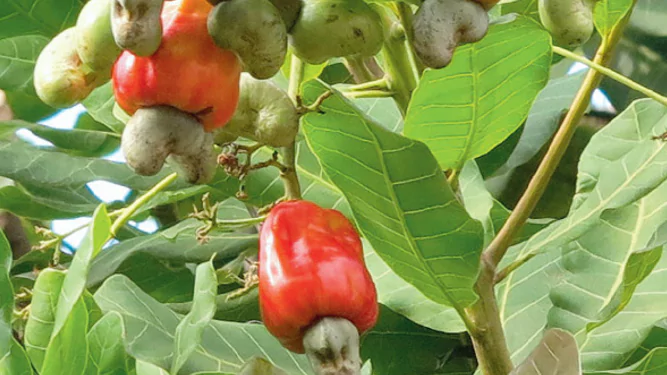August 6, 2019
Côte d'Ivoire aims to locally transform 50% of its production into cashew nuts by strengthening the competitiveness of this activity (cashew nuts ).

Images by IT
The Ivory Coast, the world's largest cashew producer with 761,000 tons, will reach 47% of local processing of its production in 2022 against less than 10% currently.
The announcement was made by the Ivorian government at the signing on Monday, August 5, 2019 in Abidjan of eight agreements with industry for the processing of 107,000 tons of cashew nuts over four years.
"The beneficiary companies will have to increase the amount of processed cashew nuts by 107,000 tons over four years, which should enable us to achieve a local transformation rate of at least 47% in 2022," said the Ivorian Minister of State. Economy and Finance,Adama Koné .
The latter invited the signatory companies to "scrupulously respect" their commitments for effective development of the local processing of cashew nuts in Côte d'Ivoire, ensuring that the government will guarantee favorable conditions for the application of the conventions.
Ivory Coast aims to locally transform 50% of its production and this requires, according to Minister Adama Koné, to strengthen the competitiveness of this activity in order to increase investments in this sector.
In this context, the government instituted tax incentives in July for investments in the field of agricultural processing.
The signed agreements, according to Adama Koné, are the illustration of this measure which devotes the exemption of customs duties and value-added tax (VAT) on the batches of spare parts, according to the zone of 'investment.
Since 2014, the Ivorian State has adopted a set of incentives. In January, the World Bank provided financial support of 107 billion CFA francs ($ 185 million) to Côte d'Ivoire for a project to increase the competitiveness of the cashew value chain.
The project includes the construction of four industrial units for local processing and should allow the development of adequate infrastructure, as well as the reinforcement of new storage capacities through the rehabilitation of warehouses and shops, and the strengthening of the traceability and quality control system. to create good marketing conditions.
Ivorian production is expected to reach 2019, about 800,000 tons against 760,000 tons in 2018, for a grinding rate of 10% with 29 grinding units.
The bulk of the production exported in the form of raw nuts to Vietnam, India and Brazil is made by small producers, about 250,000, grouped in about twenty cooperatives.
No comments:
Post a Comment